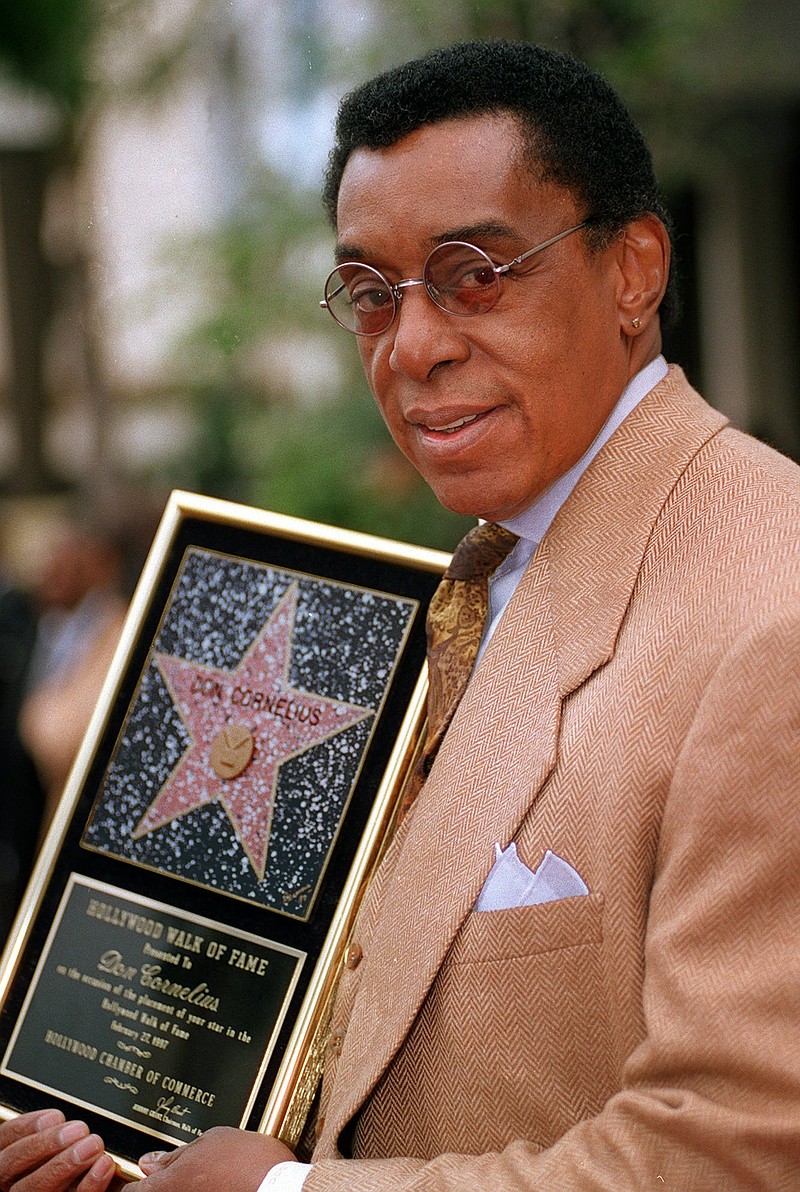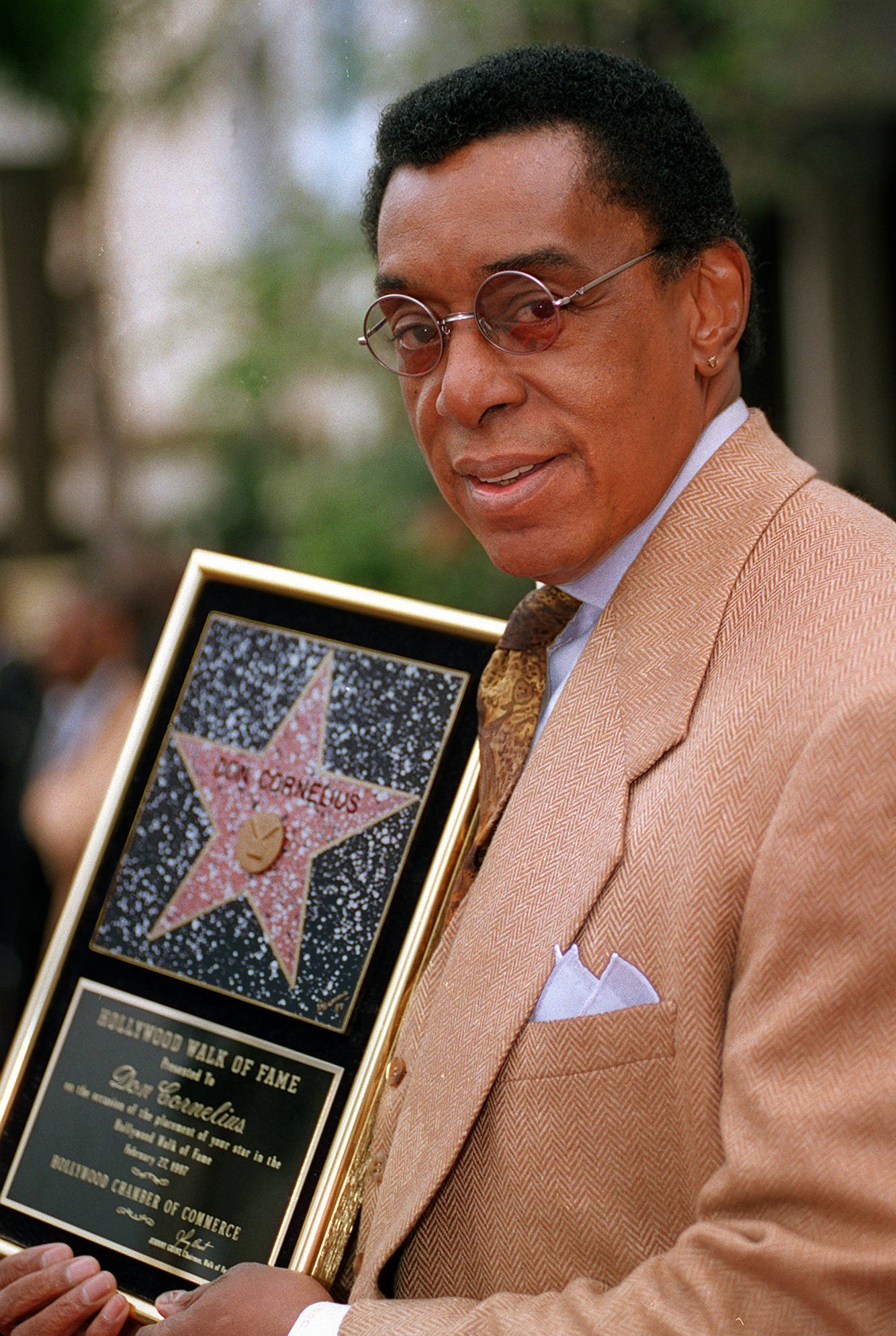By FRAZIER MOORE
AP Television Writer
NEW YORK - In an era when Beyonce and Jay-Z are music royalty, when Barack Obama is the nation's chief executive, and when black stars in the cast of a TV show are commonplace, it may be hard to grasp the magnitude of what Don Cornelius created once he got his "Soul Train" rolling.
Yes, the syndicated series delivered the music of Earth Wind & Fire, the Jacksons, Marvin Gaye and Stevie Wonder into America's households, infusing them with soul in weekly doses. Yes, it gave viewers groovy dances and Afro-envy, helping get them hip to a funky world that many had never experienced, or maybe even suspected.
But it was more than that. Before BET would give African-Americans their own channel, and before black music and faces found their way to MTV videos as well as network dramas and comedies, "Soul Train" became a pioneering outlet for a culture whose access to television was strictly limited.
"Most of what we get credit for is people saying, 'I learned how to dance from watching "Soul Train" back in the day,"' Cornelius told Vibe magazine in 2006. "But what I take credit for is that there were no black television commercials to speak of before 'Soul Train.' There were few black faces in those ads before 'Soul Train.'
"And what I am most proud of," he added, "is that we made television history."
"Soul Train" (which went on for 35 seasons) didn't make history just by influencing the music charts. It served as a pop-culture preview and barometer of fashion, hairstyles and urban patois.
By some measure, "Soul Train" was the equivalent of Dick Clark's "American Bandstand," although belatedly. Arriving on the wave of the Civil Rights Era, it premiered 13 years after "Bandstand" went national, then took a while longer to attract local stations to air it and advertisers to support it.
From there, it became a Saturday afternoon ritual as soul and rap artists (and white artists, too, including Elton John and David Bowie) showed off their latest releases while kids responded on the dance floor.
"When you come up with a good idea, you don't have to do a whole lot," Cornelius told The New York Times in 1996 in describing his show's formula. "The idea does it for you."
On "Soul Train" ("the hippest trip in America," the announcer proclaimed, "across the tracks of your mind") the host, of course, was Cornelius, but to describe him as the black Dick Clark is somewhat misleading. (A bit like calling Pat Boone the white Little Richard, as David Bianculli noted in his "Dictionary of Teleliteracy.")
For Cornelius, the difference was all in the execution, as he told The Associated Press in 1995.
"If I saw 'American Bandstand' and I saw dancing and I knew black kids can dance better; and I saw white artists and I knew black artists make better music; and if I saw a white host and I knew a black host could project a hipper line of speech - and I DID know all these things," then it was reasonable to try, he said.
On his show, Cornelius was the epitome of cool, with a baritone rumble that recalled seductive soul maestro Barry White, and an unflappable manner.
He laced his show with pro-social messages directed at his black audience.
On a 1974 program, he interviewed James Brown about the tragedy of violence in black communities ("black-on-black crime looks very bad in the sight of The Man," Brown said sorrowfully). Then he brought on a 19-year-old Al Sharpton, already a civil rights activist, who presented Brown with an award for his music.
But Cornelius never let preaching get in the way of "Soul Train's" hipness - or of his own.
Standing by Mary Wilson of the Supremes on another edition, he displayed a slim black suit that flared into bellbottoms, a grey shirt with white polka dots, and a huge afro.
"What do you do for kicks?" he asked Wilson, who mentioned bowling as one hobby, but said how much she wanted to dance with Cornelius on "Soul Train."
"You can dance with me," Cornelius replied. "But not on television."
---
Music Writer Nekesa Mumbi Moody and Television Writer David Bauder contributed to this report.

